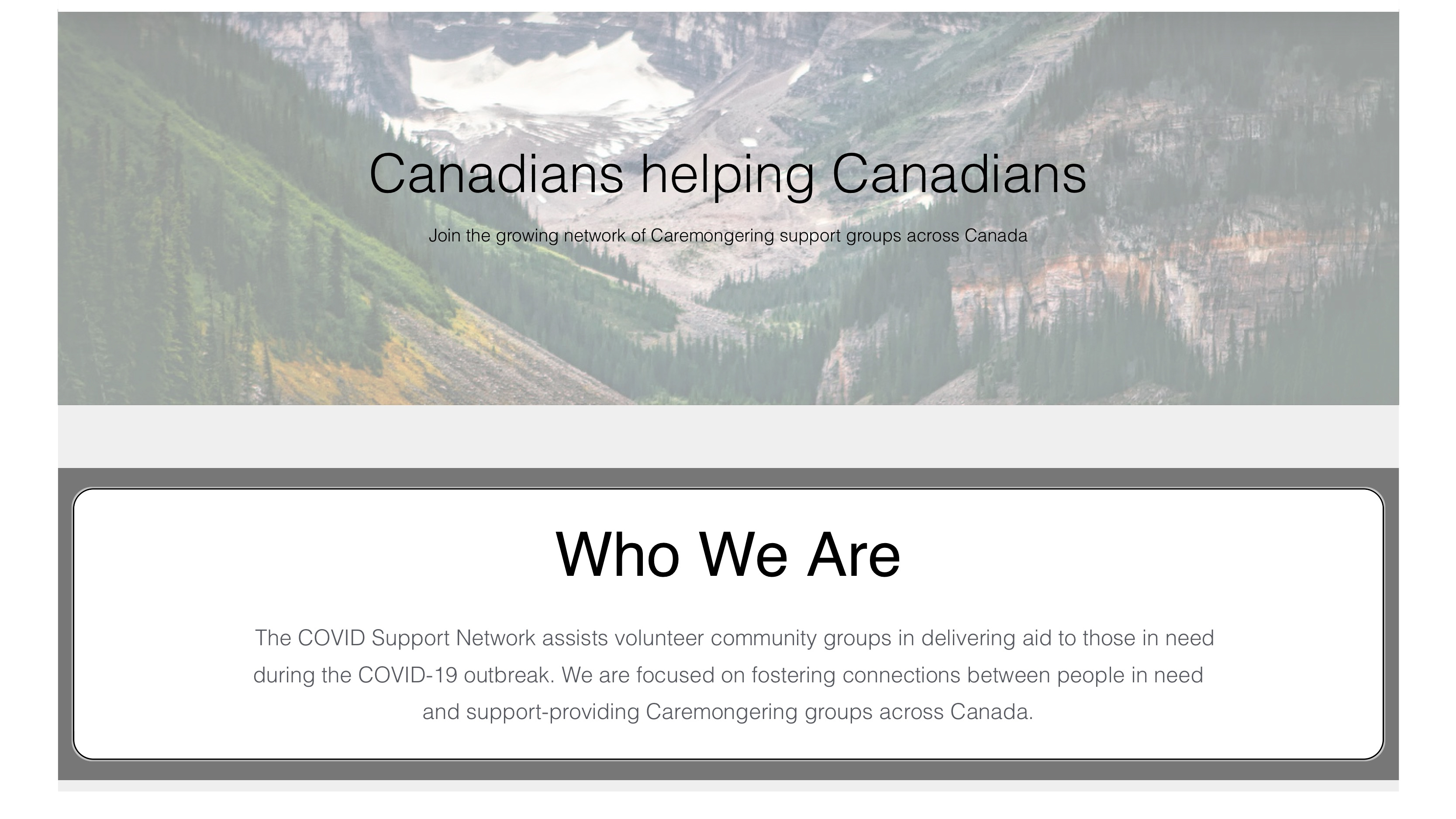Students Launch COVID-19 Website to Connect Resources with those in Need
Interview by Kelly Hobson - 11 May 2020

When the COVID-19 pandemic began wreaking havoc on a global scale, most people turned to government leaders and public health authorities for information on how to stay safe in the midst of an unprecedented threat. As daily press briefings featuring world leaders and Chief Medical Officers became the norm, a generation of tech-savvy high school and university students saw their own leadership opportunities emerging from the chaos.
From the comfort of their dorm rooms and parents' homes, teens and twenty-somethings have taken matters into their own hands, creating websites with digital repositories of global statistics and local support networks. A seventeen-year-old in Washington State now runs one of the world's most popular COVID-19 websites. And here in Edmonton, two University of Alberta undergraduate students recently teamed up with a web designer to launch the COVID Support Network, a new website that lists "caremongering" volunteer community groups offering resources to people in need across Canada.
The Peter Lougheed Leadership College recently sat down (virtually) with Eliska (Ellie) Podsednik and Pranamika Dutta, co-founders of the COVID Support Network and current and alumni PLLC scholars, respectively, to learn more about this growing initiative.
Tell us a bit about the COVID Support Network.
Pranamika: We saw that there were these "caremongering" groups coming up on social media and how communities were coming together to do this work. In the U.K. there's the Mutual Aid network, and we essentially copied them. They created a directory of all the groups available to UK citizens. We thought, "Hey, it would be really cool if we create something like this here." Essentially, if you want to reach out for help but you don't know where to go, by going onto our website you can see what's available in your vicinity.
What kinds of support might people be able to access through the COVID Support Network?
Eliska: It's meant to be a central directory, it's not that we're hoping to mobilize our own support providing services. It's to connect people who are looking for support, for example if they need groceries, that kind of stuff.
Pranamika: So, for example, in the City of Edmonton there are three groups you could potentially reach out to (e.g. Caremongering - YEG, YEG Community Response to COVID 19). When we were looking for these Facebook groups, we saw a number of needs being advertised. For example, someone was saying they have sensitive baby wipes, and asked whether anyone needed some.
What regions or areas does the COVID Support Network service?
Pranamika: We looked to see what "caremongering" groups exist all across Canada. We've got some from all of the provinces and territories, so that's pretty cool. In total we've got about 60 or 70 groups across Canada, of course with more groups in the areas that are more heavily populated, such as Quebec, Ontario, and B.C.
How can people support this project?
Pranamika: We would love it if other organizations offering help would like to advertise through our "Classifieds for COVID." If you're an organization that's willing to provide help to people in need, please reach out to us. We'd love to list you on our site. The best way people could support us is by using our site.
Eliska: Even if people aren't in a place where they can give help or maybe they don't need help, sharing the site with other people. They might know someone who can offer support, or maybe they know somebody who needs support, and this might be a really good tool for them.
It sounds like getting traction is a challenge when there's so much information out there.
Eliska: We've been having conversations about trying to reach out to different news networks, to see if we can get broader coverage to get the word out there. We know there are other community supports and not all of them would be on Facebook.
Pranamika: Our goal was originally to create a space for people who are in need. We've done that sufficiently, and now we're waiting for people to come to our site to know where they can go. The second, broader step would be encouraging communities to create [these] grassroots [initiatives] for themselves.
You're full-time students who just finished final exams, and your semester was suddenly moved online. What made you want to take on this side project?
Eliska: For me, having all my courses moved to home, I lost a bit of routine. So, this was a really nice way to focus our energy somewhere. Pranamika and I both went through PLLC courses, so it made sense that we'd work together on this.
So, you saw this opportunity to employ your leadership skills, and you decided to take it.
Pranamika: In my second year PLLC courses, I found that we really focused on how there's a vision and a mission and how all these things tie together to give any organization purpose. We really found that we had aligned goals in wanting to do something with regards to everything that's going on in the world. Because we were at home, we saw that there was so much social media mobilization happening, and we wanted to do something that was within our capacity to help.
What's next for the COVID Support Network?
Pranamika: We're hearing such good news about reopening and us having flattened the curve sufficiently enough for life to resume back to normal. That would put the COVID Support Network out of business, and that would be great news. But we're also preparing for the worst case scenario, which is if there's a second wave in the summer or if things do continue to get worse, unfortunately. We're hoping to mobilize those community supports that are already there, so they can be there for the most vulnerable members if we get to that point.
This conversation has been edited for length and clarity.